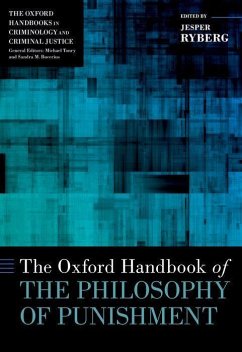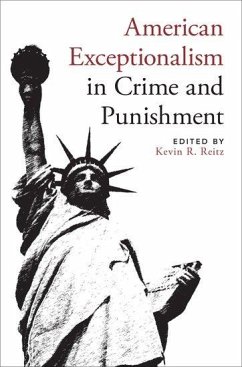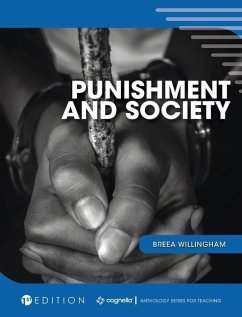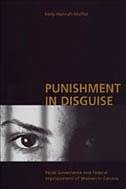Nicht lieferbar
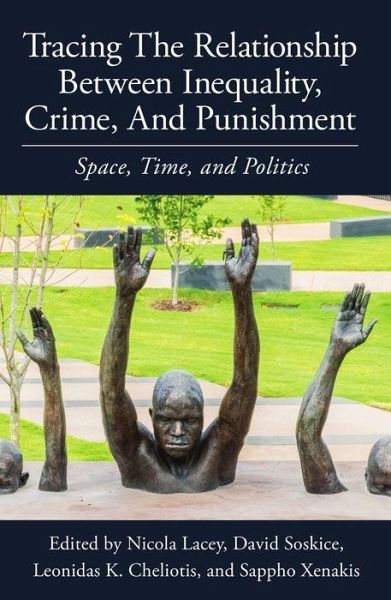
Tracing the Relationship Between Inequality, Crime and Punishment
Space, Time and Politics
Herausgeber: Lacey, Nicola; Xenakis, Sappho; Cheliotis, Leonidas; Soskice, David
Versandkostenfrei!
Nicht lieferbar




This book develops an interdisciplinary analysis of the institutional, cultural and political-economic factors shaping crime and punishment so as better to understand whether, and if so how and why, social and economic inequality influences levels and types of crime and punishment, and conversely whether crime and punishment shape inequalities.
Nicola Lacey's research is in criminal law and criminal justice, with a particular focus on comparative and historical scholarship. She has held a number of visiting appointments, most recently at Harvard Law School. She is an Honorary Fellow of New College Oxford and of University College Oxford; a Fellow of the British Academy; and from 2015-2019 a member of the Board of Trustees of the British Museum. In 2011 she was awarded the Hans Sigrist Prize by the University of Bern for outstanding scholarship on the function of the rule of law in late modern societies and in 2017 she was awarded a CBE for services to Law, Justice and Gender Politics. David Soskice has been School Professor of Political Science and Economics at the LSE since 2012. He is currently working with Wendy Carlin (UCL) on tractable macroeconomic models; with Nicola Lacey on the comparative political economy of crime and punishment; with Torben Iversen on advanced capitalist democracies; and he gave the 2013 Federico Caffé lectures in Rome on Knowledge Economies: Winners and Losers. He was President of the European Political Science Association from 2011 to 2013; he is a Fellow of the British Academy and of the American Academy of Arts and Sciences; and he is an Honorary Fellow of Trinity College, Oxford. Leonidas Cheliotis is an Associate Professor of Criminology in the Department of Social Policy, London School of Economics and Political Science. He is also Director of LSE's Mannheim Centre for Criminology. His research, teaching, and public engagement are primarily focused on the political economy and social psychology of punishment, as well as on the operations and consequences of penal and cognate policies. In recognition of his research, he has received a number of awards, most recently the 2020 Gerhard O.W. Mueller Award of the International Section of the American Academy of Criminal Justice Sciences and the 2016 Adam Podgòrecki Prize of the International Sociological Association's Research Committee on Sociology of Law. Sappho Xenakis is a Reader in Criminology and International Relations and Assistant Dean for Research in the School of Law, Birkbeck, University of London. She is also a founding co-director of Birkbeck's interdisciplinary Centre for Political Economy and Institutional Studies. Her research explores the relationship between national, transnational and global forces behind the emergence and evolution of criminal justice policies, particularly as concerns the use of imprisonment and efforts to counter organised and white-collar crime. In 2018, she was conferred the Critical Criminal Justice Scholar Award of the Critical Criminal Justice Section of the American Academy of Criminal Justice Sciences.
Produktdetails
- Verlag: Liverpool University Press
- Seitenzahl: 370
- Erscheinungstermin: 28. Januar 2021
- Englisch
- Abmessung: 237mm x 164mm x 28mm
- Gewicht: 724g
- ISBN-13: 9780197266922
- ISBN-10: 0197266924
- Artikelnr.: 60557919
Herstellerkennzeichnung
Libri GmbH
Europaallee 1
36244 Bad Hersfeld
gpsr@libri.de
Für dieses Produkt wurde noch keine Bewertung abgegeben. Wir würden uns sehr freuen, wenn du die erste Bewertung schreibst!
Eine Bewertung schreiben
Eine Bewertung schreiben
Andere Kunden interessierten sich für



